Book Review - The Shift: The Next Evolution in Baseball Thinking
by Fred Hofstetter on May 3, 2020Russell Carleton's The Shift is an entry-level introduction to the way a really, really smart bleeding-heart baseball fan thinks about the modern game.
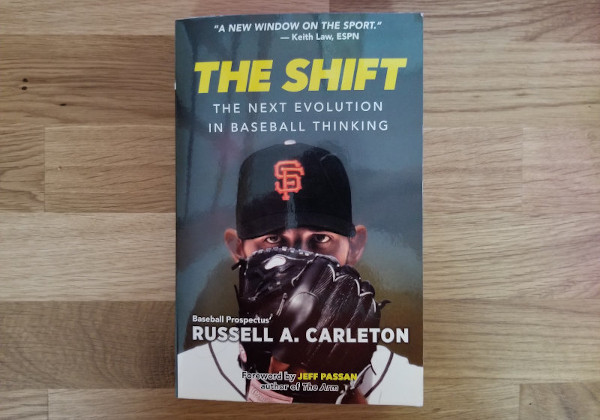
This book might just tweak the way you think about baseball.
The Shift: The Next Evolution in Baseball Thinking

Russell Carleton's The Shift is an entry-level introduction to the way a really, really smart bleeding-heart baseball fan thinks about the modern game.
Buy on AmazonWhere cognitive science and baseball romanticism meet
Russell Carleton has prefaced much of his work with the warning “GORY MATHEMATICAL DETAILS AHEAD.” I must admit to glossing over those mathematical details more often than not. Lucky for me and all of his readers, Carleton has a knack for making complex ideas digestible and gets the point across before his warnings. He just provides the gory stuff for the more patient and hyper-curious than me who really wants a peek under the hood.
He’s an accomplished sabermetric-minded baseball writer who’s made significant contributions to advance baseball thinking, and his The Shift: The Next Evolution in Baseball Thinking is an entry-level introduction to the way a really, really smart bleeding-heart baseball fan thinks about baseball.
Carleton is a writer for Baseball Prospectus who holds a Ph.D in clinical psychology. As something of an academic with a squishy, irrational Indians-fan heart, his writing compelling drifts between dispassionate fact-and-mathematics-based deduction and pure fanatical emotion. I am a curious baseball fan who definitely has days – particularly Sundays – where it’s kind of fun to just be lazy and pretend that baseball is magic where unquantifiable things happen and it’s not worth trying to explain. But once Monday rolls around? I’m probably doing more research on that magic Sunday thing trying to find a precedent or ascribe some sort of fundamental explanation to it.
The Shift is a really great read for that kind of person.
Carleton’s The Shift was published in 2018 and feels likes a super relevant predecessor to Ben Lindbergh and Travis Sawchik’s The MVP Machine, published a year later. Machine describes the evolution of player development in response to technological innovation—how players are viewed more as moldable, evolving people than static entities with X skillsets.
- Moneyball speaks to how teams can better evaluate players based on their current output
- The Shift reminds us that these outputs are generated by the skillsets of human beings
- The MVP Machine explains how teams are increasingly using technology to improve humans’ skillsets and outcomes.
Carleton emphasizes human development and how to best quantify it when possible, openly accepting that some questions still can’t be answered with a spreadsheet.
“The human element is all over baseball. It’s embedded in Rule 1.01 if you look closely. I propose that there’s room to explore that human side of the game, to do it using good scientific method, and to discover some very fun and exciting things about the game – and maybe about humans in general – along the way.”
The main reason I like this book so much is that it emphasizes logic, deduction and a clear thought process based not only on nerd stats but also human irrationality and emotional thinking. I’m writing this in 2020 and the book was published in 2018, so some of the 2017-current numbers and topics may feel just a little dated given their context within the hyper-modern game. But the numbers themselves are far less important than the logical chains Carleton continuously builds.
A favorite section.
I really like the chapter titled “Why Didn’t David Ortiz Just Bunt?”—readers familiar with sabermetric analysis may assume Carleton’s answer would be something like never ever ever bunt dummy, but that isn’t the case. The answer, like so many others, is it depends.
Carleton walks through the analysis mimicking real-time thinking, and he describes the “it depends” situations clearly and comes to different variations of both yes and no.
Summary.
The sabermetrician vs. traditionalist debate is rooted in the emphasis on quantitative vs. qualitative analysis. Random acronym weighted averages vs. grit and moxy. “How player X saves 3 aggregate runs over the course of a season” vs. “you can’t teach that.” What I see in The Shift is something of an effort to bridge the gap and emphasize we all love baseball and like talking about it. Just because a sabermetrician typically defers to quantitative over qualitative analysis doesn’t delegitimize qualitative data. There are definitely intangibles effecting the outcomes of baseball games, but what’s wrong with someone taking a crack at quantifying it?
“There aren’t any unimportant pieces. There are just pieces that we haven’t yet given their proper attention.”
And the nerds still revel in the romance of the game just like traditionalists—every bit as prone to allowing irrational human impulses to cloud their judgement. Sabermetricians and traditionalists have at least one thing in common: being human. Both have a tendency to forget that baseball players are human, too.
“The point of baseball research should never be to somehow reduce baseball players to number-generating algorithms. They’re people too, even though a lot of times, fans forget that. We should embrace that humanity and all the messy complexity that goes with it.”
That’s what this book is really about. I highly recommend picking this one up.

The latest articles
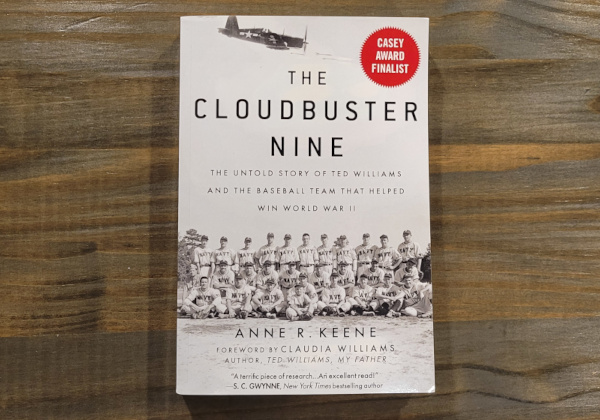
Book Review: The Cloudbuster Nine - by Anne R. Keene
by Fred Hofstetter on January 30, 2024Keene's comprehensive book tells several stories behind the V-5 Pre-Flight School in Chapel Hill, North Carolina: home to one of the rarest, greatest baseball teams in American history.
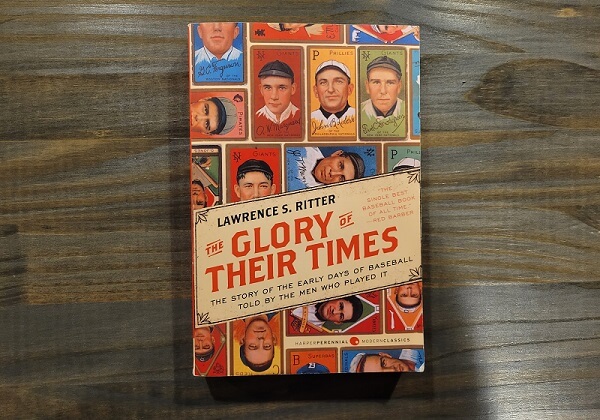
Book Review: The Glory of Their Times
by Fred Hofstetter on February 11, 2023There's good reason why The Glory of Their Times appears on every "best baseball book of all time" list you'll find anywhere.
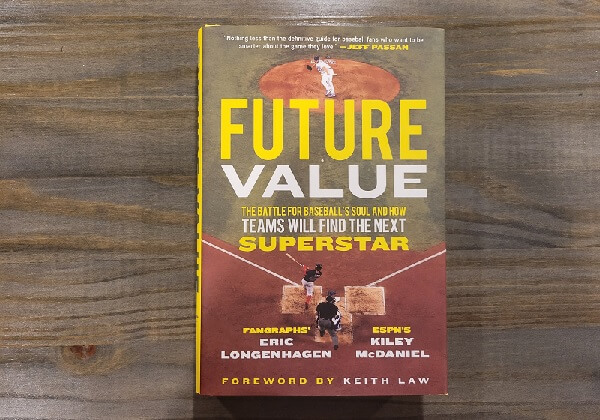
Book Review: Future Value - Eric Longenhagen & Kiley McDaniel
by Fred Hofstetter on January 8, 2023Discover how amateur and pro baseball scouting is done, how departments are built, and how organizations find talent in Future Value.
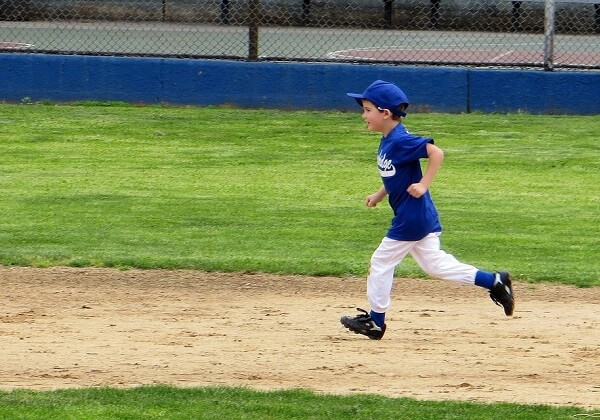
Baseball players wear hats because wearing a hat is correct
by Fred Hofstetter on April 9, 2022Practicality explains why baseball players may want to wear a billed cap. But why does every player always wear a hat? Because it’s the right thing to do.
